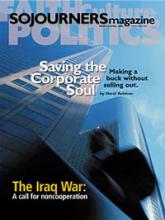Struggle is a universal part of human experience, but hopethough hard to see in disappointing circumstancesis the other side of that coin. Using the story of Jacob's wrestling match with the angel, as well as her own experiences, Chittister invites us to look again at our struggles so that we might remember how to recognize new life in our souls the next time our hearts turn again to clay, "as surely they will."
The process of struggle is the process of the internal redefinition of the self. People do it in the midst of a marriage that is failing on one set of expectations and in need of being renegotiated around others. People do it when the work they do ceases to be for them what they expected it to be. People do it when they find themselves locked out socially of the very places they want to be in life: in the midst of the dominant culture, in a position of power and authority, in a place of comfort and security. When our expectations run aground of our reality, we begin to rethink the meaning and shape of our lives. We begin to rethink not just our past decisions but our very selves. It is a slow but determining deconstruction of the self so that a real person can be reborn in us, beyond the expectations of others, even beyond our own previously unassailable assumptions. And struggle is its catalyst.
The Hebrew Testament story of Jacob wrestling with God is a model of the process. It is given to us to apply like a template to our own lives. Each element of the small vignette is a warning call to us to attend to what God is allowing to happen to us here and now so that we might go on even healthier in times to come. It provides a series of checkpoints for the spiritual life. It is in itself a veritable spirituality of struggle, which exposes to us those elements of suffering that call us to growth and give us new life.
Read the Full Article
